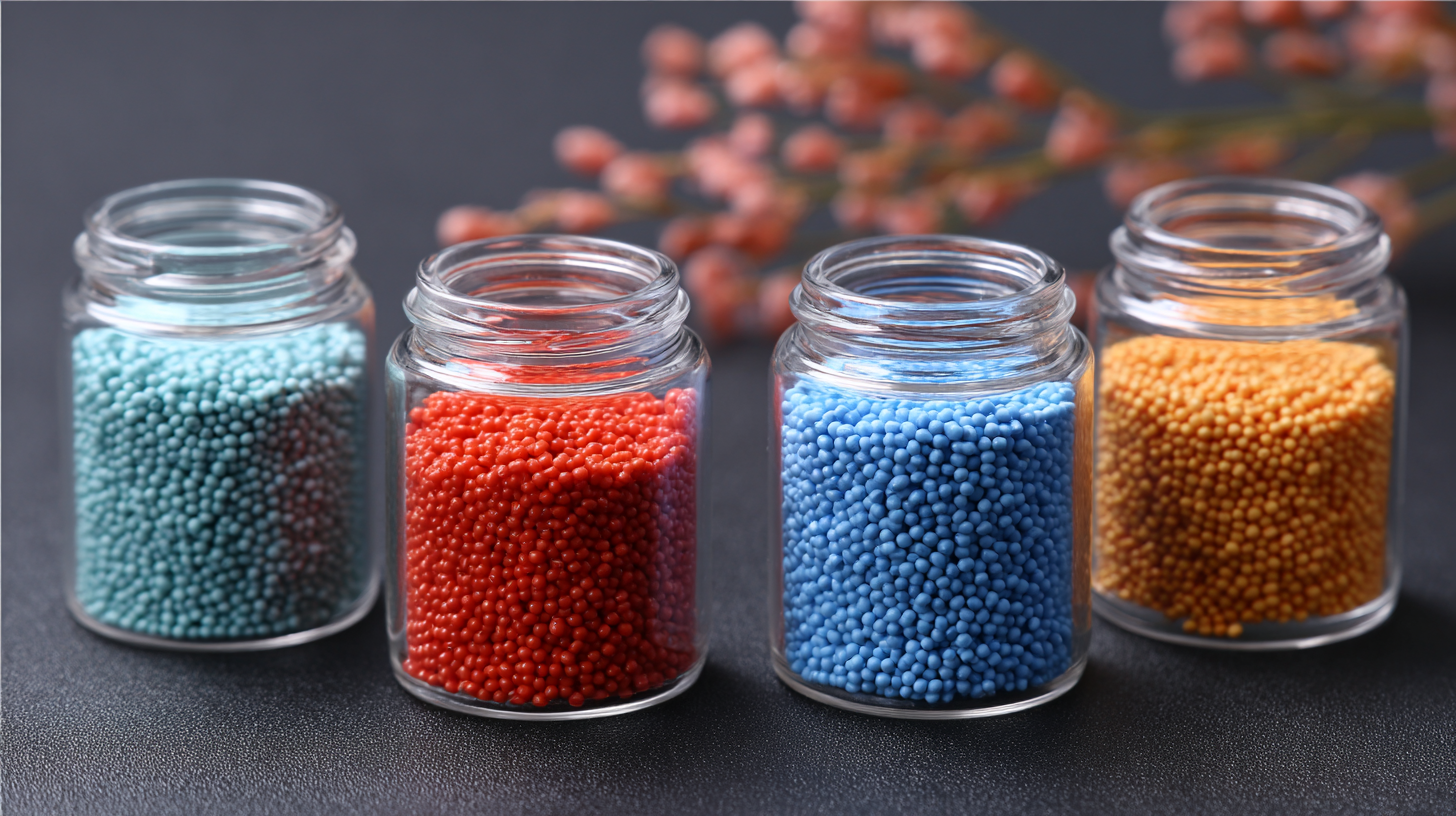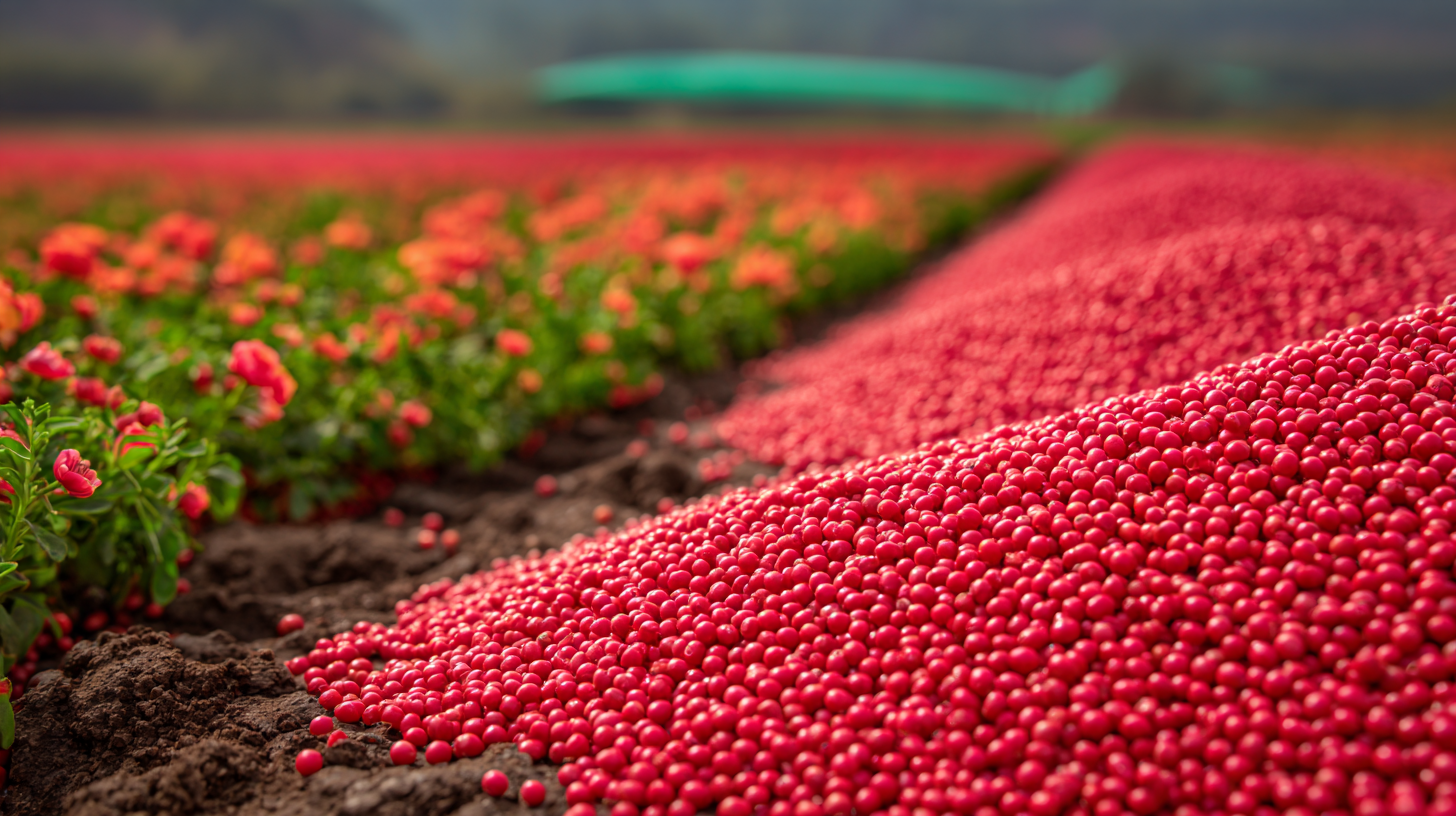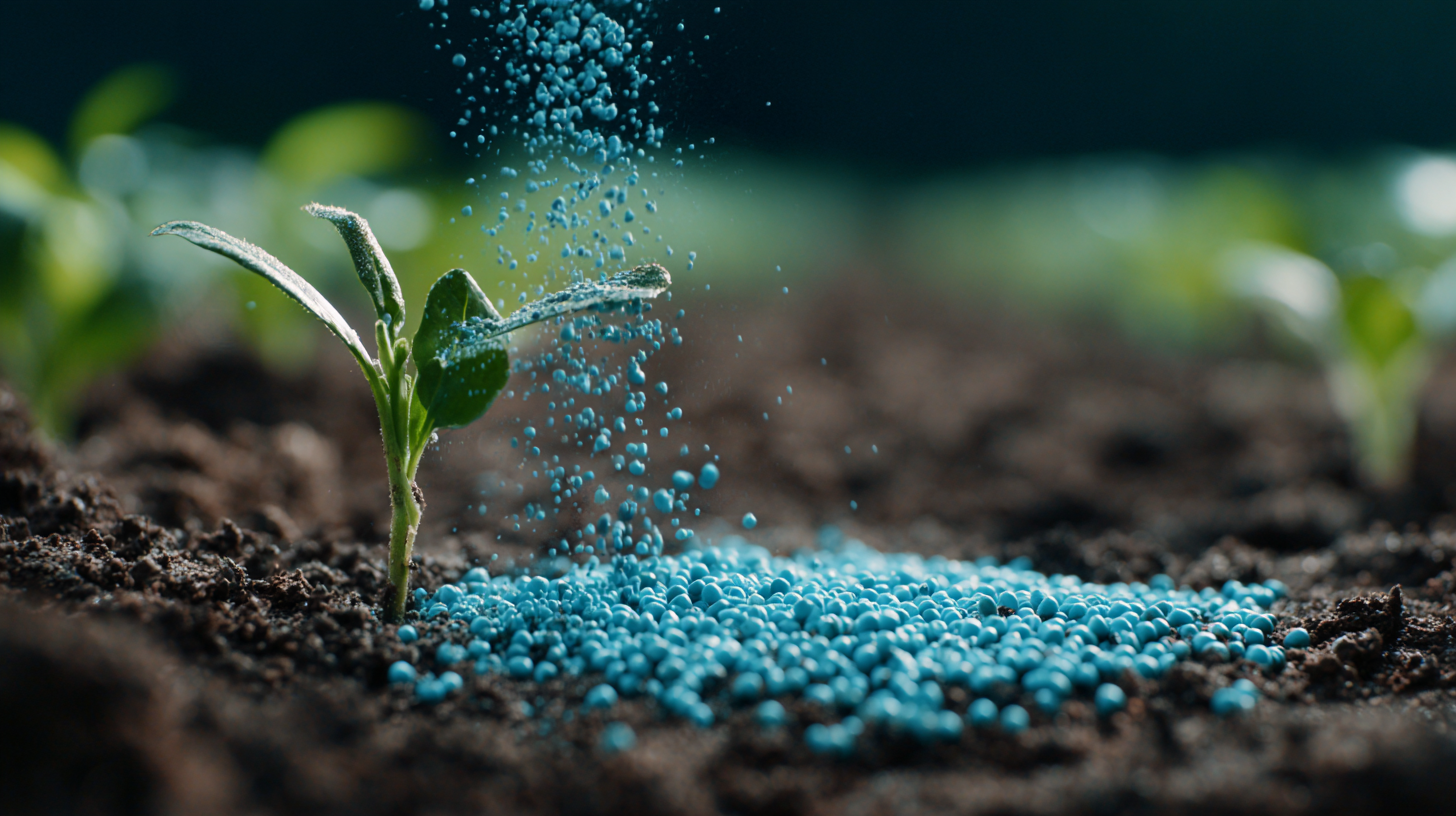In recent years, the agricultural industry has observed a significant shift towards the use of innovative fertilizers, particularly Water Soluble Granular Fertilizer (WSGF), which has garnered attention for its efficiency in nutrient delivery and environmental sustainability. According to a report by MarketsandMarkets, the global WSGF market is expected to reach $7.9 billion by 2025, with a compound annual growth rate (CAGR) of 5.3% from 2020 to 2025. This underscores the growing recognition of WSGF as essential for enhancing crop yields while minimizing the negative impacts of traditional fertilizers. As we approach 2025, advancements in technology and formulation are poised to elevate global standards in agricultural practices, particularly as countries like China lead the charge in developing superior WSGF products.

The convergence of cutting-edge agricultural technology and sustainable practices holds promise not just for increased productivity but also for the preservation of environmental integrity, setting a new benchmark in the fertilizer industry.
As the agricultural landscape evolves, the demand for high-quality fertilizers has never been greater. China's top water soluble granular fertilizers are leading the way in modern agriculture, offering a range of applications that enhance crop yield and sustainability. These fertilizers dissolve quickly in water, ensuring that essential nutrients are readily available to plants at various growth stages. By utilizing these advanced formulations, farmers can achieve faster nutrient absorption, leading to healthier plants and higher productivity.
Moreover, the versatility of water soluble granular fertilizers makes them ideal for different agricultural practices, including greenhouse cultivation, hydroponics, and traditional soil farming. Farmers can apply them through fertigation systems or directly into the soil, tailoring their usage to specific crop needs and environmental conditions. This adaptability not only boosts efficiency but also minimizes the risk of nutrient runoff, promoting a more sustainable approach to agriculture. With these innovations, Chinese fertilizers pave the way for a future where food security and environmental responsibility go hand in hand.
Water-soluble granular fertilizers are increasingly becoming essential for modern agriculture, particularly in regions aiming to optimize crop yields and enhance soil health. These fertilizers dissolve easily in water, making it simple for plants to absorb the nutrients they need efficiently. There are several types of water-soluble granular fertilizers available on the market, each tailored to address specific agricultural needs and conditions. For instance, nitrogen-based fertilizers are pivotal for promoting vegetative growth, while phosphorus-rich varieties support root development and flowering. Meanwhile, potassium fertilizers play a vital role in strengthening plants’ overall health and resilience.
In addition to these, complex fertilizers that combine multiple nutrients provide a balanced approach to plant nutrition. They are especially beneficial for specific crops that require a well-rounded nutrient profile to thrive. Moreover, some formulations also include micronutrients, such as magnesium, calcium, and trace elements, which are critical to preventing deficiencies that could hinder plant growth. Understanding the diverse types of water-soluble granular fertilizers and their specific applications can empower farmers to make informed decisions, ultimately leading to improved agricultural practices and better crop outcomes.

In recent years, the agricultural landscape has witnessed a remarkable transformation with the adoption of high-quality water-soluble granular fertilizers. Case studies from various regions showcase their significant impact on crop yield and sustainability. For instance, a farming community in Shandong Province reported a 30% increase in wheat production after implementing these premium fertilizers. Farmers attributed this success to the fertilizers' superior nutrient absorption and efficient delivery system, which allowed crops to flourish even in challenging soil conditions.
To maximize the effectiveness of water-soluble granular fertilizers, here are a few tips:
Another noteworthy success story comes from farmers in Xinjiang, where the introduction of these fertilizers led to a remarkable improvement in cotton production. By adopting a balanced fertilization strategy and leveraging the solubility of these products, farmers were able to reduce their environmental footprint while boosting productivity. This demonstrates not only the effectiveness of premium fertilizers but also their role in promoting sustainable agricultural practices.
The agricultural landscape is continuously evolving, and the choice of fertilizers significantly impacts crop yield and sustainability. A comparative analysis reveals that water soluble fertilizers (WSF) offer distinct advantages over traditional fertilizers. According to a report by the Food and Agriculture Organization (FAO), WSF can increase nutrient uptake efficiency by up to 30%, leading to higher crop yields. This efficiency is particularly vital as global food demands are projected to rise by 70% by 2050, according to the United Nations.
Furthermore, water soluble granular fertilizers provide essential nutrients in a readily available form, which can be immediately absorbed by plants. Traditional fertilizers often lead to nutrient leaching and runoff, negatively affecting the environment. A study published in the Journal of Agricultural Sciences indicated that WSF reduced nutrient losses by 25% compared to conventional fertilizers, promoting better groundwater quality. As farmers and agronomists seek sustainable solutions to enhance productivity while minimizing environmental impact, China's best water soluble granular fertilizers stand out as a pivotal innovation in modern agriculture.
| Parameter | Water Soluble Fertilizer | Traditional Fertilizer |
|---|---|---|
| Nutrient Absorption Rate | 90% | 50% |
| Application Speed | Fast | Slow |
| Longevity in Soil | Short-term | Long-term |
| Environmental Impact | Low | Moderate |
| Cost per Use | Higher | Lower |
| Recommended Crops | Vegetables, Fruits | Cereals, Oilseeds |
Innovation plays a pivotal role in enhancing the quality and effectiveness of China's water-soluble granular fertilizers. Recent developments in the industry have emphasized the importance of scientific advancements in producing fertilizers that meet the evolving demands of agriculture. For instance, companies are focusing on improving the efficiency of fertilizer usage, aligning with national efforts to reduce the overall chemical usage while maximizing agricultural output. This reflects a significant shift towards sustainable practices, where high-quality fertilizers contribute positively to both crop yields and environmental health.

